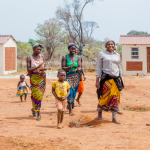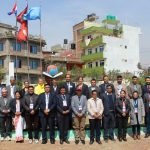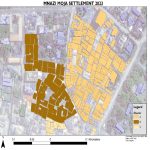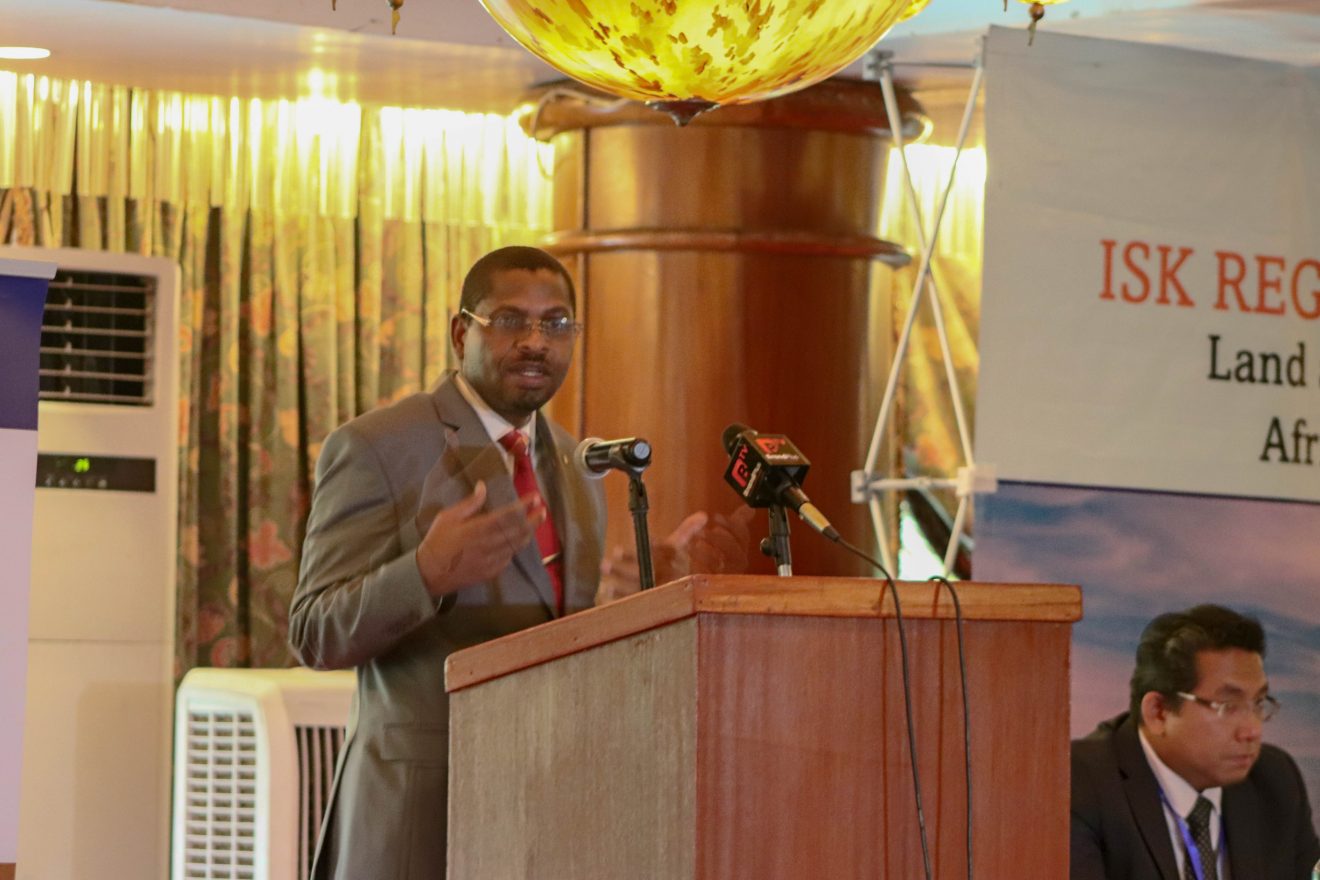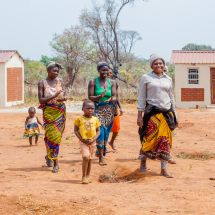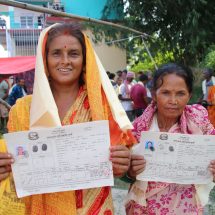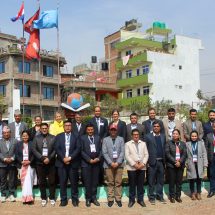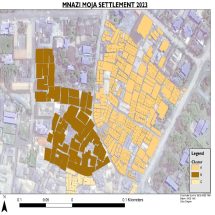The Institution of Surveyors of Kenya (ISK) Regional Conference, Safari Park Hotel, Nairobi
The annual regional conference for the Institution of Surveyors of Kenya (ISK) brought together over 300 professionals for three days from several land sectors such as surveying, real estate and property. The objective of the conference was to explore how the land and property sector can support sustainable development in Africa. For this third edition of the annual conference, UN-Habitat’s Global Land Tool Network (GLTN) partnered with ISK to promote and expand global learning and knowledge in the sector.
In his opening remarks the ISK Chair, Abraham Samoei welcomed participants but emphasized the importance of the conference as a learning event whose theme was in sync with the Kenya government’s Big Four Agenda with affordable housing being one theme. The Secretary of Housing Patrick Bucha delivered remarks on behalf of the chief guest, Cabinet Secretary for the Ministry of Transport, Infrastructure, Housing and Urban Development, James Macharia. The speech focused on affordable housing reiterating that unlocking the affordable housing puzzle is a priority for the Ministry which involves identification of bottlenecks in delivery and devising mechanisms to address challenges. The parliamentary representative from the Committee on Lands outlined the role of land management as stipulated in the Constitution and Land Policy and spoke about the support of the legislature in the land and property sector. This included enactment and regulation of the Land Acts.
The conference content delved into several important themes including, sustainable land management, enhancing accuracy of land information, land reforms and professional ethics. It was noted that sustainable land use remains a great challenge to national development, particularly as population growth has exerted pressure on land leading to continuous subdivision of agricultural land into uneconomical units but also because arable land is being used increasingly for commercial ventures (real estate, industrial sites for example).
Conference delegates debated the solution to these challenges and suggested that policies were key. In particular, the development of appropriate policy and legislation to ensure agricultural land in high potential areas is not subdivided further and enforcing use of land as planned.
A welcome video message from GLTN’s Leader, Mr. Oumar Sylla was aired. Oumar emphasized the timeliness of the conference since the world is celebrating the recognition of land governance as a driver in achieving the Sustainable Development Goals (SDGs). At the same time the Kenya government is focusing on the Big Four Agenda, whose achievement will require sound land management systems. The Country Operations Coordinator for GLTN, Danilo Antonio delivered the keynote address on ‘Land and Real Estate Sector: Delivering on Sustainable Developments Goals’. Danilo spoke about the existing land challenges and opportunities presented by the global frameworks in managing land issues. This included the role of professionals in reviewing approaches in land governance and administration and the flexibility to innovate and form partnerships which are all critical for the SDGs to be achieved.
The fit for purpose land administration session was led by GLTN and Kadaster Abroad. While presenting on the ‘Fit-For-Purpose Land Administration: Concepts and Applications’. GLTN’s John Gitau emphasized the spatial, legal and institutional frameworks as key principles for achieving tenure security for all. Case studies from GLTN projects in Uganda and Nepal were presented to show implementation.
The conference ended on a high note with a declaration on how to deliver the African sustainable agenda which included:
- Ensuring more partnership with professionals and land actors;
- Streamlining institutional roles and responsibilities to eliminate overlaps in mandates, improve efficiency and achieve integrated management of land;
- Enhancing capacity of national and regional institutions/land administration, academic, training and research institutions;
- Supporting innovative land information systems;
- Rethinking affordable housing agenda considering the issues identified around land access, availability and affordability;
- A thorough, comprehensive and all-inclusive digitization of land conveyancing processes;
- Carrying out land reforms geared towards adopting FFP land administration approach, Continuum of land rights and Pro-poor land policy.
For further information about ISK, see www.isk.or.ke. Read more on GLTN’s land administration work, here.
Article: Grace Kibunja | Photos: Judith Mulinge



